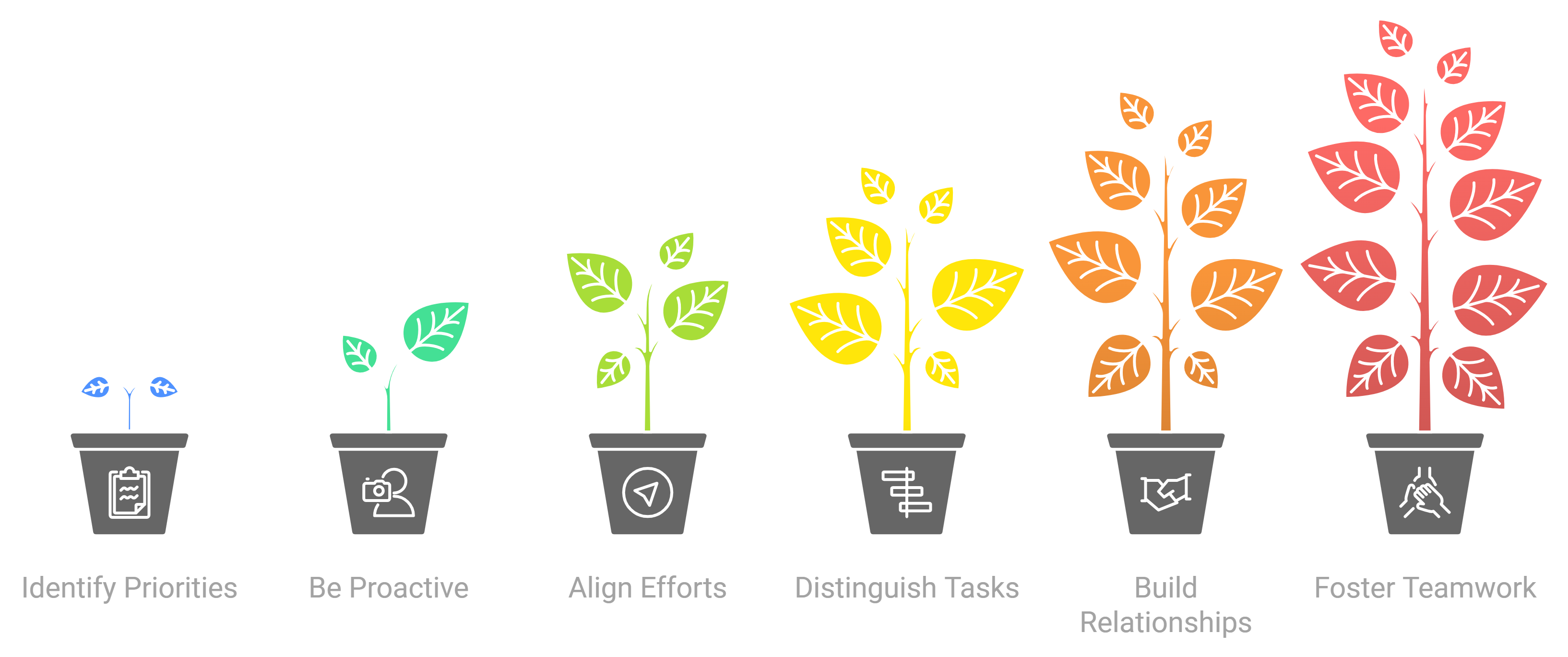
You must have read “7 habits of highly successful people” by Stephen Covey. Let me rewrite lessons from this book for IT professionals.
Success often begins with understanding what truly matters to you and focusing on those priorities. By not getting caught up in minor distractions, you can maintain clarity and purpose in your life. Experts agree that this approach leads to better outcomes since clear goals give direction and motivation.
Stephen Covey’s popular book, The 7 Habits of Highly Effective People, illustrates this beautifully with a story about a jar. The jar represents your life, and you have rocks (your priorities) and sand (less important tasks and distractions). If you fill the jar with sand first, there won’t be space for the rocks. But if you start with the rocks, you’ll still have room for the sand to fill in the gaps. This analogy emphasizes that focusing on what truly matters will leave room for smaller things without letting them take over.

The book offers a roadmap to building habits that help you stay focused. One of its key ideas is being proactive—taking control of your actions and how you respond to situations. For example, instead of complaining about workplace delays, take charge by identifying problems and finding ways to make processes more efficient.
Covey also stresses the importance of aligning your daily efforts with your long-term goals. If you aim to grow into a leadership role, for instance, you need to identify the skills and experiences required and take deliberate steps to achieve them. These are the “big rocks” that should guide your focus.
Another powerful concept in the book is distinguishing between urgent tasks and important ones. Urgent tasks often demand immediate attention, but focusing solely on them can leave little room for what’s important yet not immediately pressing. For example, investing time in learning new skills or technologies might not feel urgent today, but it’s critical for long-term career growth.
Building relationships is another key aspect of success. Covey highlights the value of creating win-win situations where both parties benefit. For instance, during a salary negotiation, a win-win approach ensures you make a reasonable case for a raise while also addressing the company’s expectations.
Empathetic listening is another habit Covey recommends, especially in leadership. By truly understanding others’ perspectives, you can resolve conflicts more effectively. For example, if two teams are at odds, a leader who listens carefully to both sides can find a solution that works for everyone.
Finally, teamwork is a cornerstone of success. Covey emphasizes the power of synergy—combining individual strengths to achieve better results. Collaboration, rather than trying to solve everything alone, often leads to greater success.
By focusing on these habits, you can create a more meaningful and balanced life, both personally and professionally.

